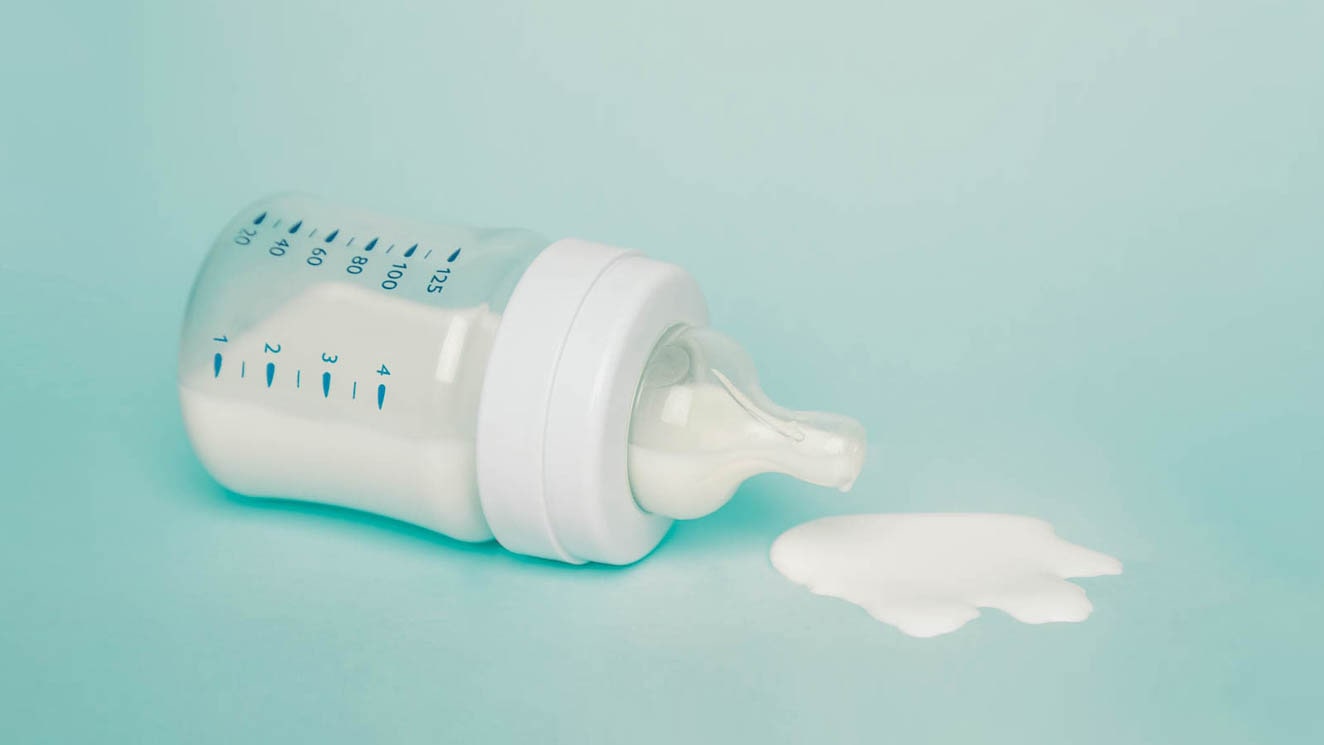

“ You’re fat.” My son said it deliberately to hurt me. This wasn’t just an innocent observation from my five-year-old; he meant it to sting. And it did. He was protesting bedtime and I was refusing to give in, so he called on his usual weaponry – he screamed, he threw himself on the floor, he wailed “I don’t care!” You know, the standard kindergartner warfare. When none of that worked, he tried something new, something that was sure to grab my attention. “You’re so fat,” he repeated, emphasizing it with a slow drawl on the first two words, and syncopation on the last.
It wasn’t the first time he had said it to me. I am fat, and he has noticed before. But this was the first time he had said it with malice. His effort to insult me actually caused me less pain than the realization that he now attached value to the word fat. He’s learned by now that being fat is bad and shameful, not simply a type of body shape — and that breaks my heart.
I’m not surprised he has learned this association so early. I was fat when I was in kindergarten, and the word cut me like daggers near-daily. It was easy for my peers to “other” me based on my size, and I quickly learned to be apologetic for my own existence, and the space I took up in the world.
“Race you to the fat kid,” said one of my third grade peers from across the playground. I was a landmark, not a person. Another classmate refused to let me try her Pogo Ball because she was sure I would pop it. And, when a boy finally did seem interested in me, I overheard a friend tell someone it was only because he, “couldn’t see anyone else” past my big body. I started to doubt that even the people I considered allies saw me as a real person.
For most of my life, the word fat was a trigger. It was more than an insult, it was a slur. It was a word that was used to marginalize me. Not only did it relegate me to the sidelines, but by the time I reached fourth grade, I bought into everything that came with the label, and I was convinced that the sidelines were exactly where I belonged. And there was a ripple effect; as others voiced their disgust with me, I became absolutely positive that being fat meant I was also gross. I excused myself from general society and the many opportunities that arose within it, certain that I would be viewed as an intruder. I was fat, and fat was unacceptable. I rejected myself before others could do it themselves.
But by the time I turned thirty-five and something in me snapped. I no longer had no energy to give towards caring about being fat. I thought at first that maybe my self-esteem had simply plummeted so low that I legitimately couldn’t care less – but that wasn’t it. It turns out that I’d started noticing things I liked about myself that transcended by body. I was witty. I was smart. I could captivate a room with my words. Social media had given me a chance to socialize with people, even becoming popular in some virtual groups, and allowed me to see that there was so much more to me than the size on my clothing tags. People liked me. Gorgeous women liked me, and where I once would have seen that as disingenuous, or even a trap, I was finally able to see myself as their peer. I believed they genuinely admired me.
As a child and teenager, the one thing I’d always been confident of was my ability to write. Now, as an adult, as I grew more outspoken online, I saw that I was getting positive reactions, and I eventually took the plunge and tried my hand at writing professionally. I succeeded. For the first time, I was trotting my newfound confidence out into the world. When I walked into a public place, I no longer felt the stares, I no longer hid. Instead I claimed my right to occupy space. I was human.
Around this time, I began to see women who looked like me in mainstream media, and not simply stuck at the back of a catalogue like an afterthought. Ads for plus-sized clothing were a big part of it. Previously, even “fat” models would still be considered slim by non-fashion standards – usually a size 10 to 14 – but now ads started showcasing clothes on bodies with visible rolls. Then came network TV shows like Mike and Molly, which featured a fat woman who was considered attractive. This character wasn’t about being fat, she was three-dimensional! Her stories revolved around her as a whole person, not simply a fat body. This was so different from the way it was when I was growing up, when fat women were always lovable sidekicks and asexual – and they were always all about their appetites, either eating or dieting.
I began to see women who walked proudly in their bodies instead of hiding themselves away. This included women in lingerie ads, bloggers in bikinis, and women I saw on the street sporting actual fashion, not just loose-fitting tarp-like garments to hide their figures. There was shift in magazine headlines, and while some of them still read “Tips to hide your problem areas,” there were others that said “Wear what you love, no matter what your body type.” I was noticing.
I remembered how at 13 years old, I had accidentally signed up for a modeling class (I’d thought it was an acting class.) My body was put under a magnifying glass (one time, quite literally) and one of our lessons involved standing in front of the room so that the class could determine your body shape. We were then given tips about how to dress to hide our problem areas. And we all had problem areas, just some of us more than others. That lesson stuck with me. I was thirty-seven years old before I bought a pair of leggings, because I did not have the body for them. So this emergent “dress how you want” attitude was life-changing. I stopped trying to fit the mold of the good, modest fat woman, and started looking at myself with a 3-D lens, taking a lesson from Mike and Molly.
While I was feeling better about myself, more comfortable in my own skin, and better represented, I knew there was a long way to go to actually de-stigmatize the word fat. There was still so much hurt associated with the word. The same way death is still horrible even when you say “passed away,” fat was still bad, even when we called it “big-boned.” We fat women were now called “plus-sized” or “curvy” or “above average,” but we were still considered abnormal. We had our own section in stores, removed from the regular people, and my translation of this was that fat was still shameful – it just had prettier names. I knew we needed to stop seeing regular and plus sizes, and start considering all sizes to be normal points on a spectrum, with fat being or no different value than any other shape.
This had to start with me. I started using the word fat more purposefully. I starting writing about my experience as a fat woman, and I began to phase out euphemisms. Why did fat need to be a bad word? Why should I allow a word that accurately describes me be used against me? I am fat, but I am not gross, I am not bad, and I am not any less worthy of my place in the world than anyone else of any body descriptor.
“You are fat, Mommy,” my son said to me. I was frozen as I wrestled with how to respond. We have discussed kindness, and why we shouldn’t use mean words towards others – that’s how he knew it would make an exceptional impact. I wanted to tell him it was a cruel thing to say. I wanted to chastise him for being hurtful and unkind. If he had called me just about anything else, I would have had a speech at the ready.
But he called me fat. If I called him on being mean, would that reinforce for him that fat was a hurtful word? If I told him not to say that, would I be confirming that fat is bad? If so, I’d be teaching him the same lessons I — and all of my tormentors — learned growing up. But if I didn’t correct him, would my son become like the children who made me hate myself decades earlier? How could I let him know that what he had said was hurtful and unacceptable, but that there was nothing wrong with the word fat, or with being fat at all? It was so complicated.
I wish I had talked to my son about intention. I wish I had told him that often the power of words comes from the motives of the person using them, and that the word fat was okay, but how he had used it was not – that being fat is not shameful, but intentionally harming others is.
Instead, I stayed silent. I refused to give his attempt at an insult any power. I hoped that by seeming like I wasn’t affected by his statement, it would show him that using the word fat as an insult was ineffective, and by extension, the word itself was harmless. Of course, it isn’t harmless — three decades later I still remember every time the word was weaponized at me — but I’m trying my hardest to do my part to neutralize its venom.
I will continue to use the word fat liberally. I will throw it around like confetti until it becomes a simple adjective instead of a gutting tool. I am good, I am kind, I am valuable, I am worthy, and I am fat. I am these all of these things simultaneously, not in spite of my fatness, and I refuse to be ashamed.







